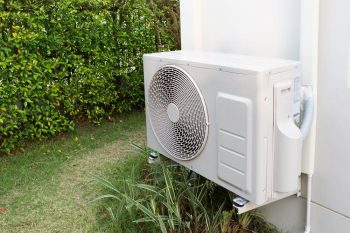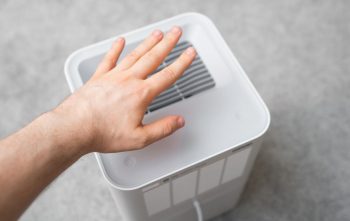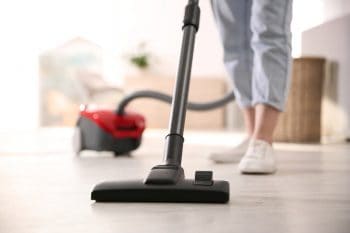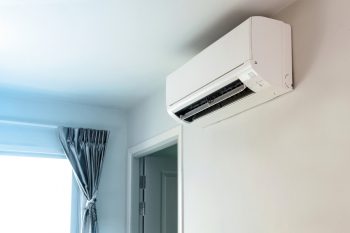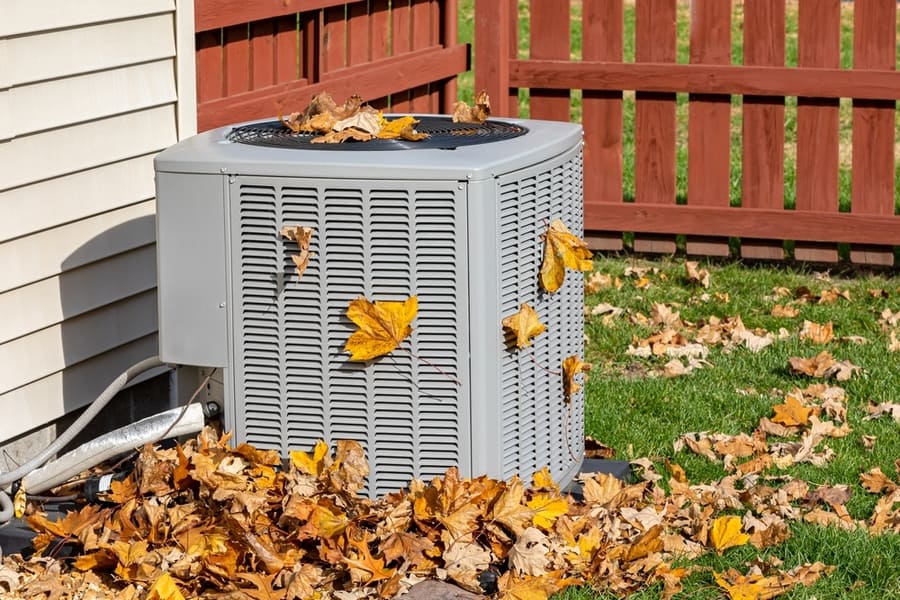
Everyone loves fallen leaves that happen in different seasons. However, no one loves when they pile inside an AC unit.
You may have the best air conditioner, but you must clean it regularly to remove fallen leaves so that it continues to function properly.
Therefore, it is essential to understand the steps of cleaning leaves out of your air conditioner system to keep it in good condition and maintain high-quality air in your home.
You should regularly perform maintenance tasks on your outdoor air conditioner unit to keep it in good condition because it helps in efficiency and airflow quality.
You must remove leaves and clean off all the fins to maintain your outdoor air conditioner unit, which takes little time. Hiring professional services for your AC system is a brilliant idea, especially if you feel the jobs you need to do are complex.
Cleaning agents can speed up the cleaning process of removing leaves from your outdoor air conditioner system. Failure to clean leaves out of your outdoor air conditioner system can impair its ability to dispel heat, leading to malfunction.
This article explains how fallen leaves can affect your AC unit and how to prepare it for the winter season when several leaves fall to the ground.
Regular cleaning of leaves out of your air conditioner unit saves you a headache. This article explains how leaves can affect your AC unit and provide ways of preparing it for the seasons that make leaves fall.
4 Steps of Removing Leaves From AC Unit
Always have a maintenance plan for your outdoor air conditioner unit. You can perform several cleaning activities on your AC unit, such as clearing loose debris or cleaning compressor coils.
Having a maintenance plan allows you to clean your AC unit without strain because you know in advance when and how to do specific cleaning tasks on your outdoor unit.
1. Switch the Power Off

Ensure the power is off on the switch of your AC unit at the breaker in your home.
2. Remove the Leaves

Once the power is off, open your outdoor air conditioner unit and clean all the leaves and debris on the condenser or compressor using a dry or wet vacuum or your hands.
3. Clean the Fins
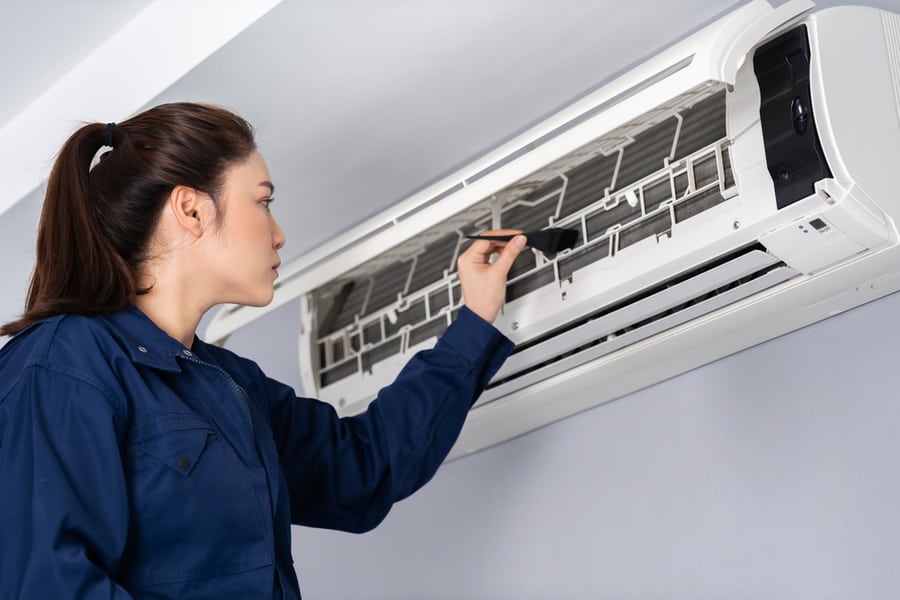
Your air conditioner unit contains thin, angled fins that prevent leaves and other debris from entering and entering. Grime, leaves, and dirt can build up in these fins over time, causing some to bend and affect their shape.
You can use fin spray to clean this area and a fin tool to straighten them. However, seeking professional services for delicate tasks with the fins is advisable.
4. Clean the Surrounding Environment
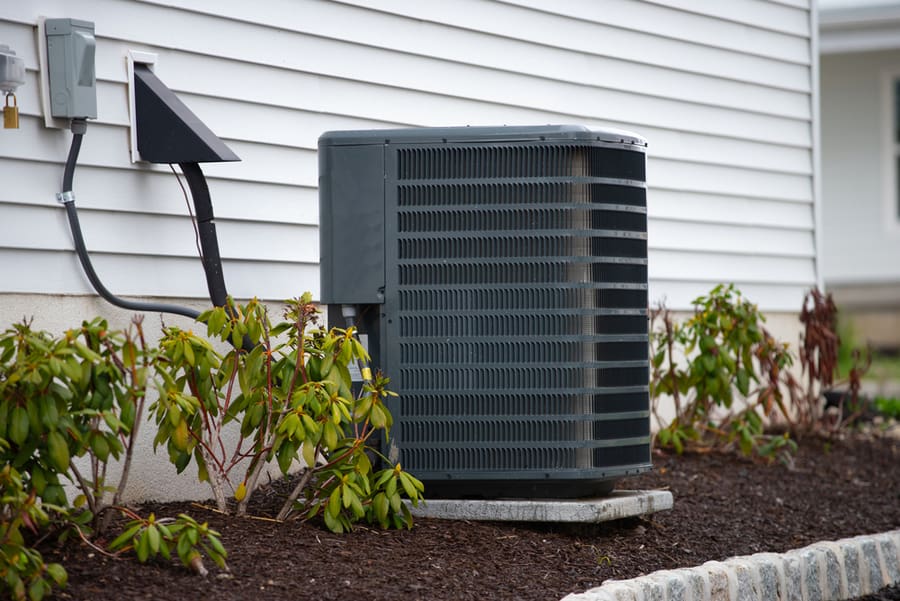
It is essential to clean the surroundings of your outdoor air conditioner environment to ensure no more leaves, debris, or dirt get inside and affect its functionality.
If trees or shrubbery surround the AC unit, trim them back and leave a space of at least 2 feet around it for proper air circulation, and no clogs can cause foliage.
Importance of Working With a Professional

Working with a professional allows you to take care of fallen leaves, mostly during autumn.
A professional can do the cleaning very fast and do other tasks you are imperfect in, such as replacing filters, cleaning indoor and outdoor AC units, and inspecting them for loose or worn-out parts.
How To Protect Your AC Unit From Leaves
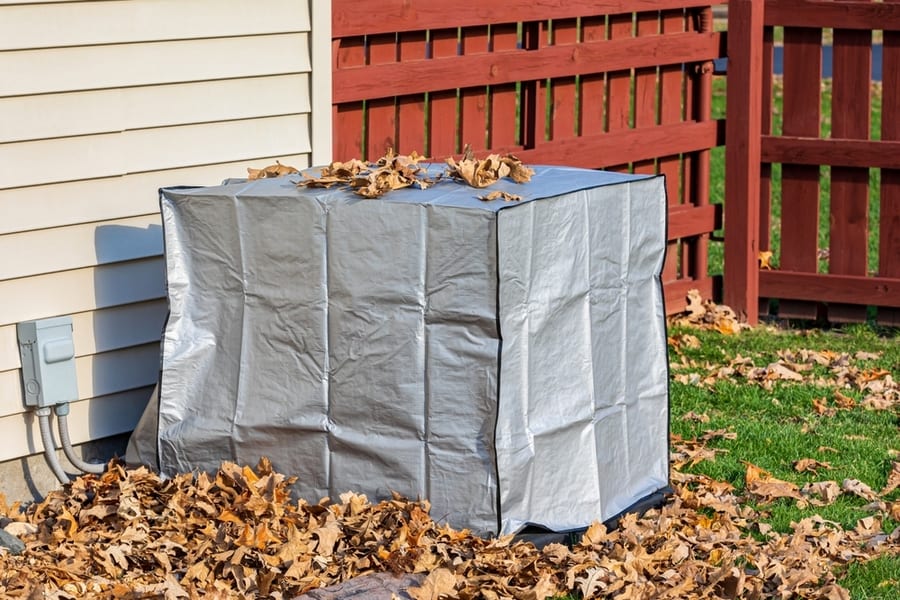
Autumn weather makes tree leaves fall, making the environment look so beautiful. However, these leaves can damage your outdoor air conditioner if you do not take care of it, especially in rural areas.
You must protect your AC from falling leaves, dirt, and other debris that get inside, cause the clog and affect its functionality.
Leaves, debris, and other dirt can incredibly destroy your AC unit. However, you can take various precautions to prevent several repairs or replacements of your outdoor AC unit.
How Leaves Affect Your AC
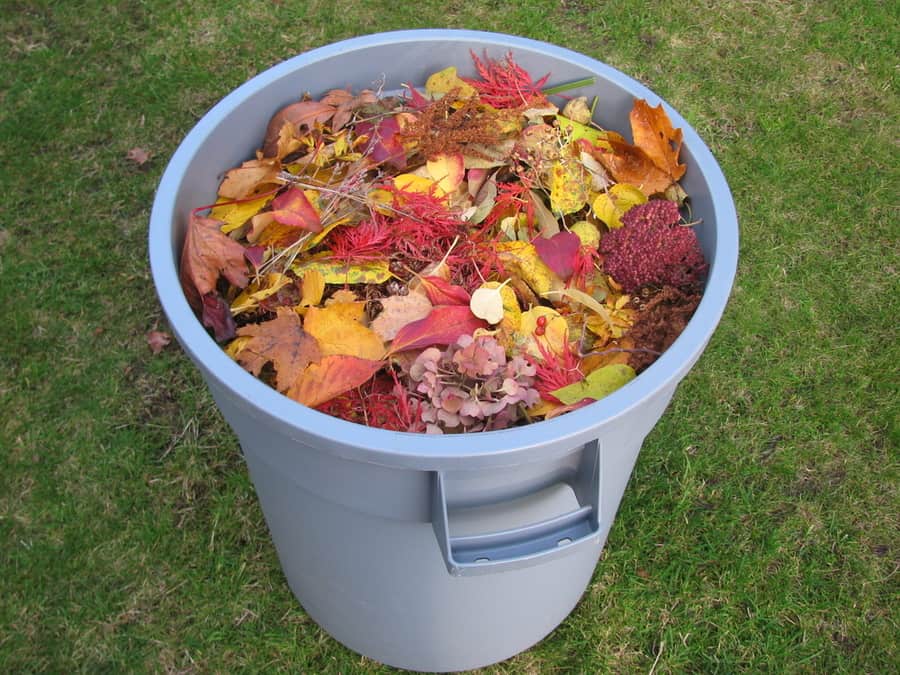
The compressor is an essential component inside your AC unit.
It circulates the refrigerant and releases cool air. Leaves affect the compressor when they get inside the AC unit.
If the air circulation in the compressor gets blocked, your AC unit works extra hard, leading to an increased electric bill.
Leaves trapped in the compressor hold moisture that causes mold and rust to critical parts of your AC Unit. Also, the moisture causes acidic gases that can destroy the copper tubing inside the AC unit.
How To Prepare AC Unit for the Winter Season
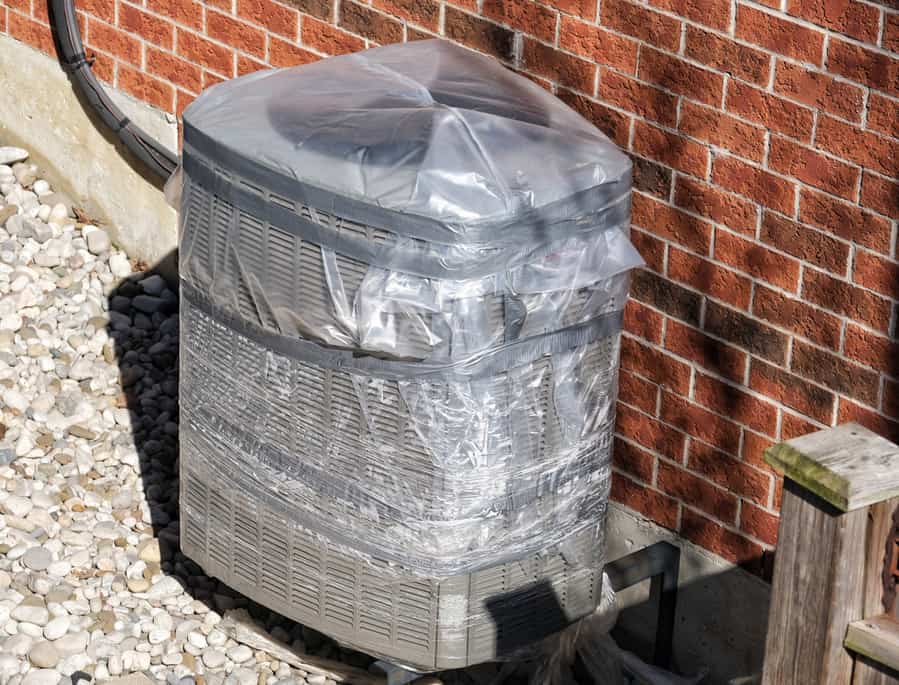
You must take preventive measures before winter sets in to ensure your AC unit is in good condition and safe from leaves and debris. The following are the preventive measure to put in place before the winter season sets in:
- Use AC unit cover: When you cover the AC unit with its cover, you protect it from snow, rain, winter hazards, and falling leaves from destroying it. However, it is crucial to select the right material. Never use vinyl or plastic because they are not breathable and allow moisture to build up, which can lead to mold or rust. Always use breathable materials to shield and protect your AC unit without any risk of mold or rust.
- Clean your AC unit: You must remove debris, other dirt, and leaves outside your AC unit at least 2 feet from its surroundings. Remove anything around it that can make more debris or falling leaves. Relocate such things if possible. If you use hose spray to clean the AC unit, ensure you don’t use high pressure because fins can get damaged. Ensure the AC unit does not contain any foreign objects, and do not use a lot of force to remove stuck objects because you can damage the AC; seek professional help immediately.
- Inspect for debris: Ensure the surrounding of your AC unit do not have debris; scan the walls, ground, and structures within the immediate environments. After that, you should inspect your unit; you can refer to the user manual or seek help from a technician.
- Routine maintenance: Scheduling for professional maintenance services before the winter season ensures the air conditioner is ready for summer. Maintenance helps extend your unit’s lifespan, preventing future expensive repair expenses and reducing energy bills.
Conclusion
Leaves are harmless, but having them in your air conditioner can be painful because they may fall under the grille or fan, which powers it by pressurizing and heating the refrigerant to ensure it flows through the unit. As a result, your AC unit can absorb heat from the air in its environment.
If the compressor of your AC gets clogged with leaves, the air conditioner can break, and the trapped refrigerant creates a breeding ground for bacteria and molds, which is a very bad thing to happen to your precious unit.
There are several ways you can prepare your AC unit for the seasons full of falling leaves so that when they set in, the unit will be safe and nothing will affect its functionality.
Frequently Asked Questions
Why Should I Clean My AC Unit?
There are several reasons why you should always keep your AC unit clean:
- It improves air quality in your home.
- It increases the lifespan of your air conditioner unit.
- It reduces energy costs while improving its efficiency.
How Do You Clean Air Filters?
It is very simple to clean air filters. Follow the instructions provided by the manufacturer in the user manual to clean reusable filters. If the filters are not reusable, you must pop them out and install new ones.
How Are Condenser Coils Cleaned?
When you clean the condenser coils of your air conditioner unit, you save yourself from costly repairs in the future. Get conditioning services to help you clean the condenser coils.

